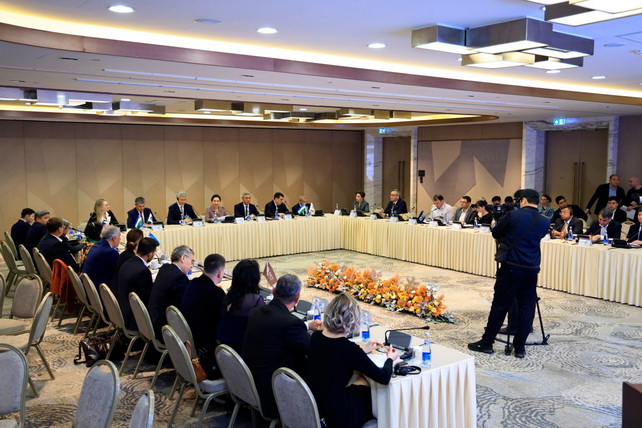
Tashkent Hosts Conference on Labor Rights and BCI in Textile Industry
Tashkent Hosts Conference on Labor Rights and BCI in Textile Industry
Tashkent, Uzbekistan (UzDaily.com) — An international conference dedicated to labor rights, responsible production, and the implementation of sustainable standards in the textile sector was held in Tashkent today.
The event was attended by Tanzila Narbayeva, Chairperson of the Senate of the Oliy Majlis and Chairperson of the National Commission on Combating Human Trafficking and Ensuring Decent Work.
In her speech, the Senate Chair highlighted that in recent years Uzbekistan has carried out deep and systemic reforms across all sectors, with historic significance in labor relations and the elimination of forced labor.
The conference presented key reforms implemented under the Better Cotton Initiative (BCI) in 2024–2025: a full transition to a certification system, the advancement of regenerative agriculture standards, introduction of updated BCI labeling, and results of independent monitoring in Uzbekistan.
It was noted that the lifting of the boycott on Uzbek cotton by the international Cotton Campaign coalition stands as one of the largest international recognitions of the country’s comprehensive reforms.
The event emphasized that Uzbekistan’s relations with international partners have moved from a stage of “monitoring and control” to one of trust-based partnership.
Annual nationwide monitoring involves the State Labor Inspectorate, the Federation of Trade Unions, independent experts, and civil society organizations.
Narbayeva also highlighted the country’s continued cooperation with BCI, international organizations, major global brands, and certification bodies, along with Uzbekistan’s readiness for open dialogue and joint initiatives to promote sustainable production, implement ESG principles, ensure due diligence, and maintain full supply chain transparency.
The textile industry has undergone extensive modernization, with new cluster opportunities created. Textile enterprises have been upgraded, and the Agency for the Development of Light Industry and its Public Council have been established. Clusters receive financial incentives, preferential loans, and tax and customs benefits.
Digital certification and quality control systems have been introduced in line with international standards, enabling efficient cluster operations across the “field-to-finished-product” chain and strengthening Uzbekistan’s integration into the global market.
The BCI certification expands opportunities for Uzbek textile products in international markets and collaboration with global brands. Today, Uzbekistan is considered one of the most open, stable, and attractive markets in the region for long-term cooperation in the textile sector, attracting growing interest from international brands, investors, and producers due to a reliable and favorable investment environment.
At the conclusion of the conference, the parties signed a Memorandum of Understanding and a roadmap for further action, formalizing plans for the continued development of a sustainable textile sector.